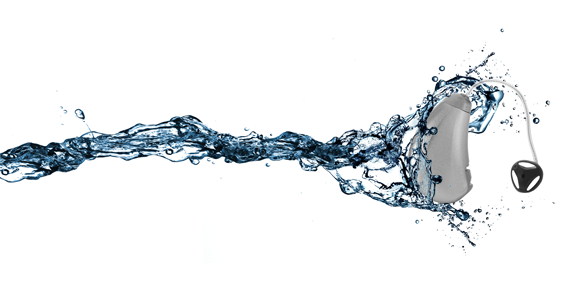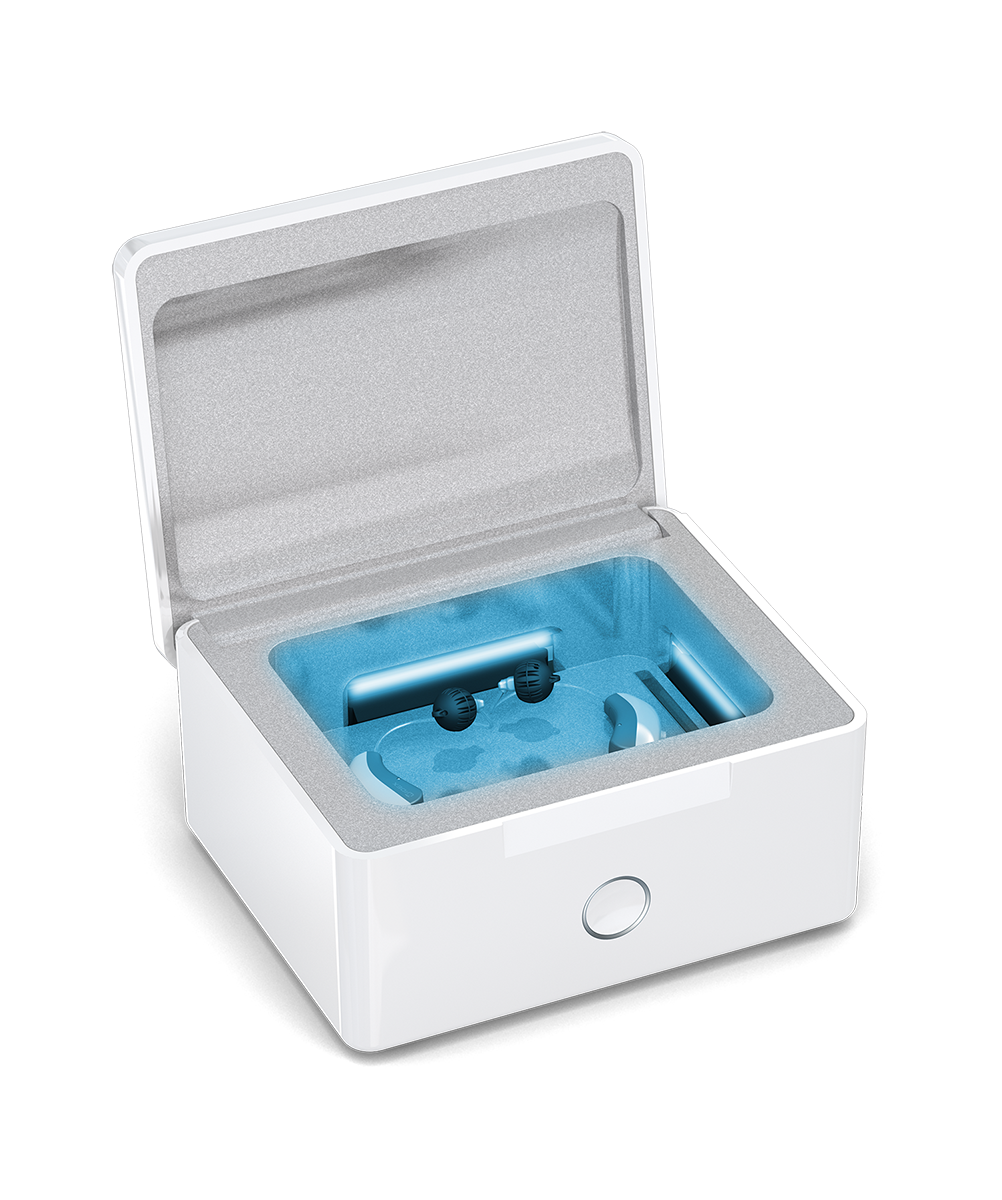Moisture in your hearing aids – Are Hearing Aids Waterproof?
Moisture in your hearing aids is not a good thing. It can cause corrosion and affect the performance of the microphone in your device. So how much moisture can your hearing aids take before they start to malfunction? Really, not very much.
In mathematical terms, half a microlitre can cause a significant drop in amplification.
That’s a very small amount of water. Not only will it cause a drop in the loudness level of your hearing aid, it will also cause the microphone to malfunction in a way that will affect your ability to hear well in background noise.

IP ratings
Moisture is everywhere, whether it’s in a sudden downpour of rain, sweat from your skin or general humidity in summer, especially for people living in hotter locations. So how do you stop moisture from damaging your hearing aids?
Before purchasing your hearing aids, look for good moisture-repellent technology. No hearing aid is waterproof, but all devices should have an ‘IP’ rating for their protection level against dust and water. For moisture repellent technology, look at the second digit of the IP rating.
The ratings are from 1-9 and determined by the International Electrotechnical Commission. The first digit refers to how robust the hearing aid is, in regard to dust and sand debris. For example, the Unitron Moxi hearing aids have an IP68 rating, as do the Oticon Opn hearing aids.
This is a good rating as anything with a 7 or above has passed a submersion test of thirty minutes in around one metre depth. With these ratings your hearing aid still work if you accidentally drop it in the washing up water or forget to take them off before you jump in the pool.
Protection from moisture
The need to keep your hearing aid dry cannot be understated. Even with high IP ratings, moisture can still have an effect on your hearing aids, particularly unaddressed moisture over a long period of time. Although moisture-repellent technology provides some protection, oil and sweat from your skin, as well as humidity in the air can impact your hearing aids’ operation. In particular, moisture in the hearing aids can affect the battery’s performance. Excess moisture in the battery housing causes corrosion.
A number of rechargeable hearing aids have desiccant capsules in the recharging case to combat this problem. Some hearing clinics will provide you with a dehumidifier when you purchase your hearing aids. If you haven’t got one – invest in one as this will increase the lifespan of your devices

If you’ve accidentally worn your hearing aids in the shower, got wet in thunderstorm, or worse still, put them through the washing machine or gone swimming with them on – don’t panic, they may not be damaged beyond repair.
To dry out your hearing aid, do the following:
- Turn off your hearing aids and remove the batteries (if you use disposable batteries). Dispose of wet batteries.
- Put your hearing aids in the Hearing Aid Dry Kit (dehumidifier) if you have one.
- If you don’t have a dehumidifier put your hearing aids on newspaper to air-dry for 24 hours.
- Put your hearing aids in with uncooked rice or silica gel sachets in a plastic container and close the lid. Leave for 24 hours.
- Do not put your hearing aids in the oven or microwave to dry out.
If, after you’ve tried to dry out your hearing aids and they still don’t work, you will need to take them back to your hearing centre for assessment to see if the damage can be repaired.
The message here is to keep your hearing aids dry. If you’re looking to purchase hearing aids, check the IP rating for good moisture-repellent technology.
When you get your hearing aid, or if you already have one, invest in a Hearing Aid Dry Kit – you won’t regret it.
Need Help Finding Hearing Aids Or Want To Arrange A Risk Free Trial?


